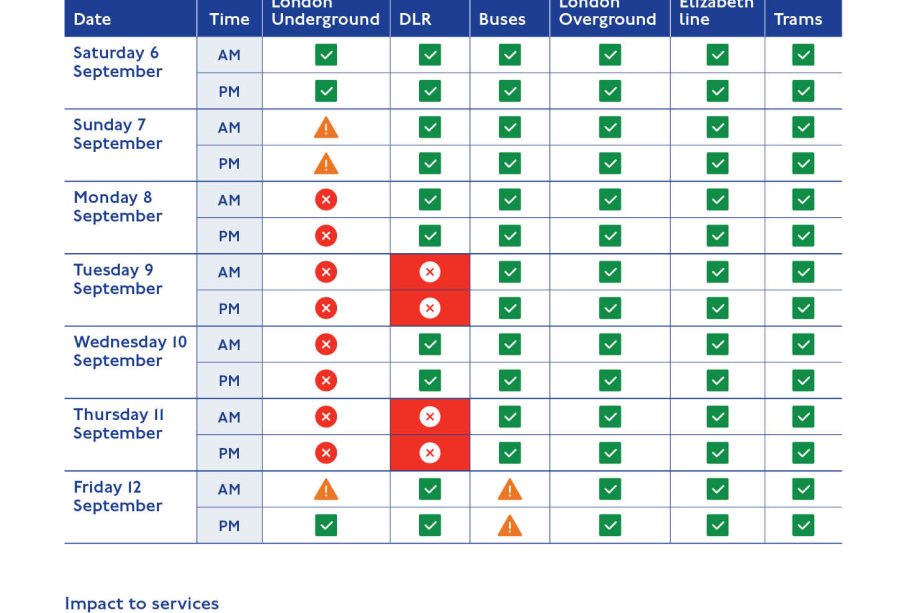Understanding the Impact of TFL Strikes on London Transport

Introduction
The recent strikes affecting Transport for London (TFL) services have garnered significant media attention due to their impact on London’s transport system and daily commuters. With London being one of the busiest cities globally, any disruption in transport services notably affects the economy, mobility, and daily life of millions. The TFL strikes, driven by various grievances, including pay and working conditions, have led to widespread frustration among commuters and raised questions regarding the future of public transport in the capital.
Details of the Strikes
In October 2023, unions representing TFL workers announced a series of strikes planned over multiple days, citing concerns surrounding inadequate wages, long working hours, and working conditions amidst the ongoing post-pandemic recovery. Unison, RMT, and TSSA have been at the forefront of these actions, emphasizing the need for TFL management to address these critical issues. With many workers stating that their current salaries are not reflective of the high cost of living in London, the unions have demanded better pay to accommodate the economic pressures facing transport staff.
The strikes have led to significant service disruptions across the capital, with reduced Tube services and extensive delays on buses and overground trains reported. Major routes were affected, leading to a significant number of commuters seeking alternative means of travel, including cycling, walking, or carpooling, which further congested the city’s roads during peak hours.
Public Response and Government Action
The public response has been mixed, with many sympathising with the workers’ demands while others express frustration over the inconvenience caused. London Mayor Sadiq Khan urged both sides to come to the negotiating table to avoid further disruptions, highlighting the need for a balanced approach that considers the welfare of TFL employees and the commuting public.
In response to the strikes, TFL has communicated their commitment to addressing workers’ issues while highlighting the financial challenges the organisation has faced, particularly after years of reduced fare income during the COVID-19 pandemic.
Conclusion
As the TFL strikes continue, the implications for London’s transport network and its commuters are profound. The ongoing situation underscores the critical balance between workforce welfare and public service delivery. If negotiations do not lead to a resolution soon, the strikes may pave the way for more extensive actions, compounding the challenges for commuters. Observers predict that the outcome of these strikes could influence labour relations in other sectors as workers advocate for fair treatment and compensation in an uncertain economic climate. In the coming weeks, the focus will remain on ongoing discussions between TFL management and union representatives, with hopes for a swift resolution.








